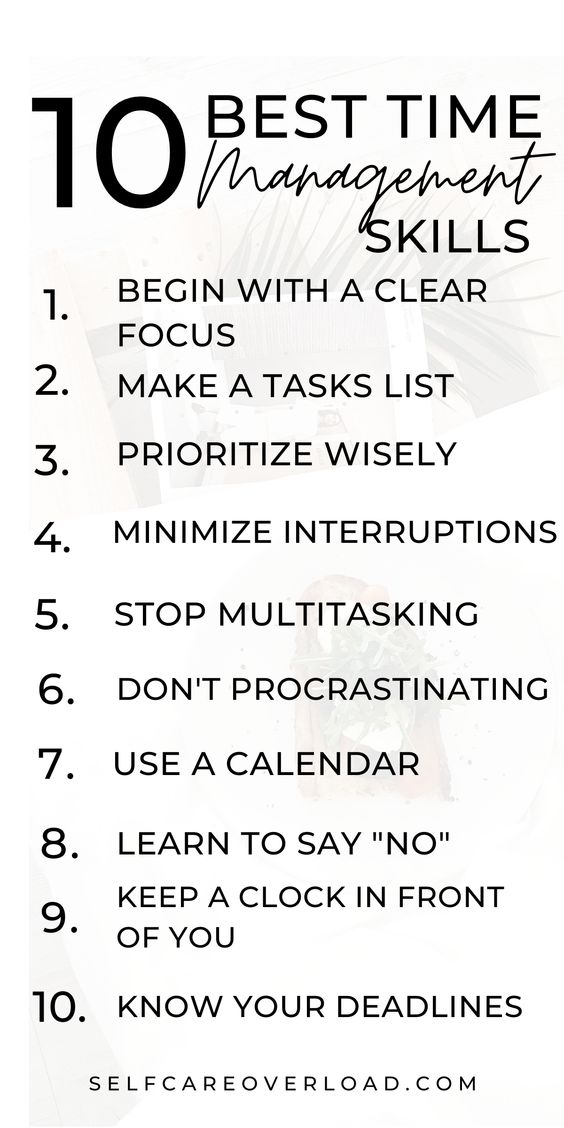Are you struggling to manage your time effectively? Do you often feel overwhelmed and stressed out? With so many things vying for our attention, it can be challenging to prioritize tasks and use our time wisely. However, with the right strategies, you can become a master of time management. Here are eight practical tips to improve your time management skills.
Set Clear Goals
One of the most important things you can do for effective time management is to set clear goals. Without specific goals in mind, you may find yourself floundering and wasting time on unimportant tasks. Take some time to identify your priorities and create a list of tasks to complete each day. You can use apps like Trello or Todoist to help organize your tasks and track your progress.
Plan Ahead
Another useful strategy is to plan ahead. By taking a few minutes to map out your day or week, you can avoid spending time on non-essential tasks. Start each day by reviewing your goals and to-do list and identifying your most important tasks. This will help you stay focused and productive throughout the day.
Prioritize Tasks
When you have a lot of tasks to complete, it can be tempting to tackle the easiest or most enjoyable tasks first. However, this can lead to wasting time on tasks that don’t add value or move you closer to your goals. Instead, prioritize your tasks based on their importance and urgency. This will help you focus on the tasks that matter most and avoid getting sidetracked.
Minimize Distractions
Distractions are a common time-waster. Whether it’s social media, email, or other interruptions, distractions can derail your productivity and waste valuable time. To minimize distractions, consider turning off notifications, using apps like RescueTime to track your time, or setting aside dedicated time for checking email or social media.
Focus on One Task at a Time
Multitasking may seem like an efficient way to get more done, but studies have shown that it often leads to decreased productivity and quality of work. Instead, try focusing on one task at a time. This will help you avoid feeling overwhelmed and improve your ability to concentrate and stay focused.
Take Breaks
Taking breaks may seem counterintuitive when you’re trying to be productive, but research has shown that regular breaks can actually improve focus and productivity. When you work for too long without taking a break, your brain can get fatigued, making it harder to concentrate and be productive. Try taking short breaks every hour or so to recharge your batteries and stay on task.
Be Realistic
When setting goals and planning your day, it’s important to be realistic. Don’t overload your to-do list with tasks you know you can’t complete in a day. Instead, aim to complete a few important tasks each day, and celebrate your accomplishments. This will help you stay motivated and avoid feeling overwhelmed.
You might find these FREE courses useful
- Cloud Cost Management: Optimization Strategies
- Budgeting and Scheduling Projects
- Introduction to Budgets in Microsoft Azure Cost
- Fundamentals of financial and management
Learn to Say No
Finally, one of the most powerful things you can do for effective time management is to learn to say no. It can be tempting to say yes to every request or opportunity that comes your way, but this can lead to overcommitment and stress. Be selective about what you say yes to, and prioritize your own goals and priorities.
In conclusion, effective time management is a skill that can be learned and improved upon with practice. By setting clear goals, planning ahead, prioritizing tasks, minimizing distractions, focusing on one task at a time, taking breaks, being realistic, and learning to say no, you can become a master of your time and achieve your goals with ease.
